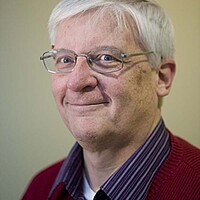Sun King wants to brighten life for rural poor
Loading...
To those living in developed countries, Sun King solar lights are pretty cool little gadgets. Once charged using a small solar panel (included) they provide a good source of light for up to 30 hours. Or they can be used to recharge up to two cell phones at a time. They could be a fun item to take on a camping trip or use during a power outage.
But in India and Africa, where more than 2 million of them have already been sold, the lights mean much more. In thousands of rural villages without electrical service they mean children can see to do their homework after dark. And families don't burn kerosene lamps for light, which present serious health, safety, and environmental hazards with their smoky fires.
[Editor's note: The original version of this post misstated the number of solar lights that have been sold.]
Designing the technically sophisticated yet durable lights has been a nifty accomplishment for Greenlight Planet, a for-profit enterprise begun in 2005 whose aim is to replace dangerous kerosene lamps with safe and efficient solar lights.
But creating a good product was actually the easy part, says Anish Thakkar, co-founder of Greenlight Planet, which produces the Sun King brand. "The challenge of distributing [the solar lights] broadly, and in a way that is cost efficient and keeps the retail price down, is really the big challenge," he says.
Finding an effective sales and distribution model wasn't easy.
"There was 2 1/2 years of screwing up.… We did a lot of things wrong," says Mr. Thakkar, who is based in Bombay and spoke on a recent trip to Boston. But what emerged is a system they believe can be widely and successfully replicated.
In brief, Greenlight Planet identifies trusted and respected people in each village, perhaps a school teacher, and persuades them to become Sun King sales agents. Most have never sold anything before and need substantial training. They learn how to help buyers set up their solar lamps (many customers can't read written instructions) and return to the buyer's home if there are any problems.
The agents benefit too, through a substantial new source of income.
"[Our] agents increase their income by 40 percent. It's a huge opportunity" for them, Thakkar says. Agents, who reach about 10 new homes per month, actually add to their position of respect in the community. "They become known as the Sun King babu," he says, which roughly translates as "the big guy, the boss."
The four models of Sun King lights range in price from about $11 to $40. That can be a daunting sum for people living on one or two dollars per day and who have little or no savings. "Do I have the cash in my pocket today is always a challenge," Thakkar says.
Farmers have been good customers. Their income comes in once or twice a year when they harvest and sell a crop. "These are families that save" and understand the concept of buying something, like seeds or equipment, that will pay off later, he says.
The lights pay for themselves within four to 10 months in two primary ways: Families no longer need to buy kerosene for lamps, and they no longer have to travel, sometimes for miles, to pay someone (usually running a small diesel generator) to charge their cell phones.
Even very poor families in India and Africa often have a cell phone, which serves a wide variety of purposes from banking to business deals to being a major source of entertainment, Thakkar says.
Greenlight Planet has chosen a for-profit model for a reason: It wants to view the people it helps as customers, not beneficiaries of charity. Customers who pay for products "vote with their wallet every day," he says, challenging Greenlight to show its products have real value. The company, now in its ninth year, is "getting close" to profitability, Takkar says.
The company's three co-founders had been students together at the University of Illinois. Thakkar was part of a student project that helped set up a bio-diesel generator in a village in India.
"It was a cool technology," meant for husking rice and other agricultural uses, he says. But upon returning a year later the students found that the village had been strung with wires connected to the generator: It had been converted to generate a little bit of electricity for village homes.
Thakkar marveled at the ingenuity involved. But the incident was "also a slap in the face" for the engineering students, he says: They had decided that the village needed rice husking. The villagers knew they needed household lighting more.
So Greenlight Planet was born to provide off-the-grid lighting in rural villages. Today the units, which include cutting-edge LED bulbs, solar panels, and lithium ferrophosphate batteries, are manufactured in Shenzhen, China, where 25 Greenlight engineers work designing products. The company has grown to 800 full-time employees and 6,000 local sales agents.
With it's expertise in marketing and distributing products in rural villages, Thakkar says, Greenlight may expand its offerings. "We'd like to be that answer for other technologies too," he says. "We're testing those now."
[Editor's note: The original version of this post incorrectly spelled Mr. Thakkar's name.]








